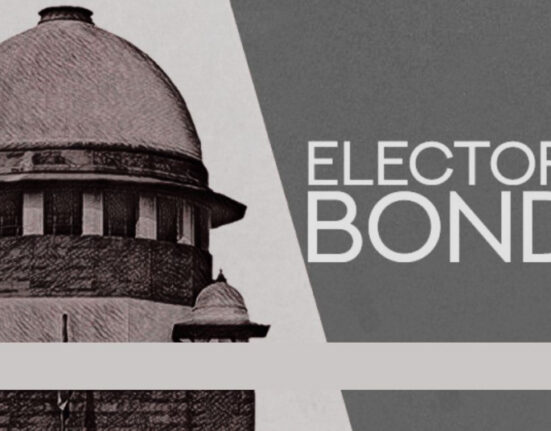Karan Modi, A 2nd-Year, B.K Mercantile Bank Law College Student has written this Article”FREEDOM TO TRADE, COMMERCE, AND INTERCOURSE”
Introduction:
Trade is one of the most crucial pillars for the growth of any nation or state’s economy. Trade is necessary for economic growth because no state or nation can manufacture all the goods that are required. Due to this, Articles 301 to 307 of Part XIII of the Indian Constitution, 1950 introduced the concept of freedom of trade, commerce, and intercourse within India.
The Indian constitution adopted the provisions of freedom of trade, commerce, and intercourse from the constitution of Australia.
All provisions of freedom of trade, commerce, and intercourse are in Part XIII of the Indian Constitution, 1950 which is explained in this article.
Difference between Article 301 and Article 19(1)(g) under the constitution of India:
Before we dive into the provisions of Articles 301- Articles 307, let’s understand the basic difference between Article 301 and Article 19(1) (g) under the constitution of India:
- Article 301 empowers the free flow of trade, commerce, and intercourse throughout the Indian Territory, While Article 19(1) (g) provides freedom of practice any occupation, trade, or business.
- Rights under article 301 are Constitutional and Rights under article 19(1) (g) are Fundamental Rights.
- Any person can claim rights under Article 301, whereas rights under Article 19(1)(g) are only available to Indian citizens.
- Article 302 to 305 imposes a restriction on Article 301. The state can restrict Article 19(1)(g) by virtue of Article 19(6) of the Indian Constitution.
Freedom to Trade, Commerce, and Intercourse:
As per the Article 301 of the Indian Constitution, 1950 trade, commerce, and intercourse throughout the territory of India shall be free.
Now let’s understand the meaning of trade, commerce, and intercourse.
Trade:
In simple words, trade means buying or selling goods excluding the manufacturing process.
Commerce:
In simple words, commerce means all forms of transportation of goods in any mode.
Intercourse:
In simple words, intercourse means the movement of goods from one place to another place. Intercourse will cover all those activities which might not include in the ambit of trade and commerce.
Illustration
If Mr. Lives in Gujarat and wants to expand his business and sell his products in other states, let’s say he wants to do business in Punjab so he has freedom of trade, commerce, and intercourse as per article 301 of the constitution of India.
Power of Parliament to impose restrictions on trade, commerce, and intercourse
Article 302 provides that parliament of India may by law impose such restrictions on the freedom of trade, commerce, or intercourse between one State and another or within any part of the territory of India as may be required in the public interest.
Article 303 limits the power of Article 302.
Restrictions on the legislative powers of the Union and of the States
Article 303 make restriction on the legislative power of the Union and of the states with regard to trade and commerce:
- Notwithstanding anything in article 302, neither Parliament nor the Legislature of a State shall have the power to make any law giving, or authorizing the giving of, any preference to one State over another, or making, or authorizing the making of, any discrimination between one State and another, by virtue of any entry relating to trade and commerce in any of the Lists in the Seventh Schedule.
- Nothing in clause (1) shall prevent Parliament from making any law giving, or authorizing the giving of, any preference or making, or authorizing the making of, any discrimination if it is declared by such law that it is necessary to do so for the purpose of dealing with a situation arising from scarcity of goods in any part of the territory of India.
In short, the parliament shall not discriminate between states for trade, commerce, and intercourse.
Restrictions on the freedom of trade, commerce, or intercourse among states
Article 304 of the constitution of India states that notwithstanding anything in article 301 or article 303, the Legislature of a State may by law—
(a) impose on goods imported from other States 1[or the Union territories] any tax to which similar goods manufactured or produced in that State are subject, so, however, as not to discriminate between goods so imported and goods so manufactured or produced; and
(b) impose such reasonable restrictions on the freedom of trade, commerce or intercourse with or within that State as may be required in the public interest: provided that no Bill or amendment for the purposes of clause (b) shall be introduced or moved in the Legislature of a State without the previous sanction of the President.
Let’s understand these provisions via an illustration:
Illustration
If Karnataka imports commodities from other states, it must tax them at the same rate at which it taxes its own goods. For example, if Karnataka levies a 5% tax on wheat produced within its borders, it cannot vary the tax rate on wheat imported from other states. It will be unconstitutional.
Saving Existing Laws
Article 305 provides that nothing in articles 301 and 303 shall affect the provisions of any existing law except in so far as the President may by order otherwise direct, and nothing in article 301 shall affect the operation of any law made before the commencement of the Constitution (Fourth Amendment) Act, 1955, in so far as it relates to, or prevent Parliament or the Legislature of a State from making any law relating to, any such matter as is referred to in sub-clause (ii) of clause (6) of article 19.
As its state Article 305 saves existing Laws and Laws providing for state monopolies except in so far as the President may by order or otherwise.
Appointment of authority for carrying out the purpose of articles( 301- 304)
As per Article 307 Parliament may by law appoint such authority as it considers appropriate for carrying out the purposes of articles 301, 302, 303, and 304, and confer on the authority so appointed such powers and such duties as it thinks necessary.
Landmark Judgments
The state of Bombay vs. R.M.D. Chamarbaugwala (1957)
The court held that article 301 does not provide protection to all activities of criminal nature or those activities which are undesirable. Activities like gambling, lottery or trafficking, etc.
State of Mysore vs. H.Sanjeeviah 1967
Facts: In this case, the government under the Mysore forest Act, of 1900, made a law banning the movement of forest produce between sunrise and sunset.
Issue: Whether it violated the freedom guaranteed under Article 301 of the Constitution?
Judgment: The Supreme Court held the law is void. It also remarked that such a law was restrictive and violated the freedom provided under Article 301.
State of Madhya Pradesh vs. Bhailal Bhai
Facts: In this case, the state of Madhya Pradesh impose a tax on imported tobacco which was not even subject to tax in the very own state.
Issue: Whether it was violative of the Article 304 of the Constitution?
Judgment: The court disapproved of the tax statement and stated that it was discriminatory in nature. Thus, it violates Article 304 of the Indian Constitution
Conclusion
The provisions of freedom of trade, commerce, and intercourse given in Articles 301 to 307 of Part XIII of the Indian Constitution can aid in the development of the business as well as the nation’s economy. These provisions are not absolute; the parliament may impose limitations if they are in the public interest.
As huge as our country is, trade is an important pillar for national development and economic growth. With this, Citizens all over the country can consume an apple from Kashmir and break down geographical borders in the country.
For a detailed article on “Why we need a Constitution”: Click Here
![]()







Leave feedback about this